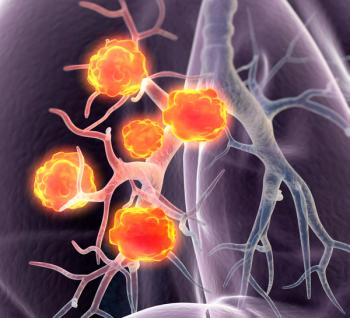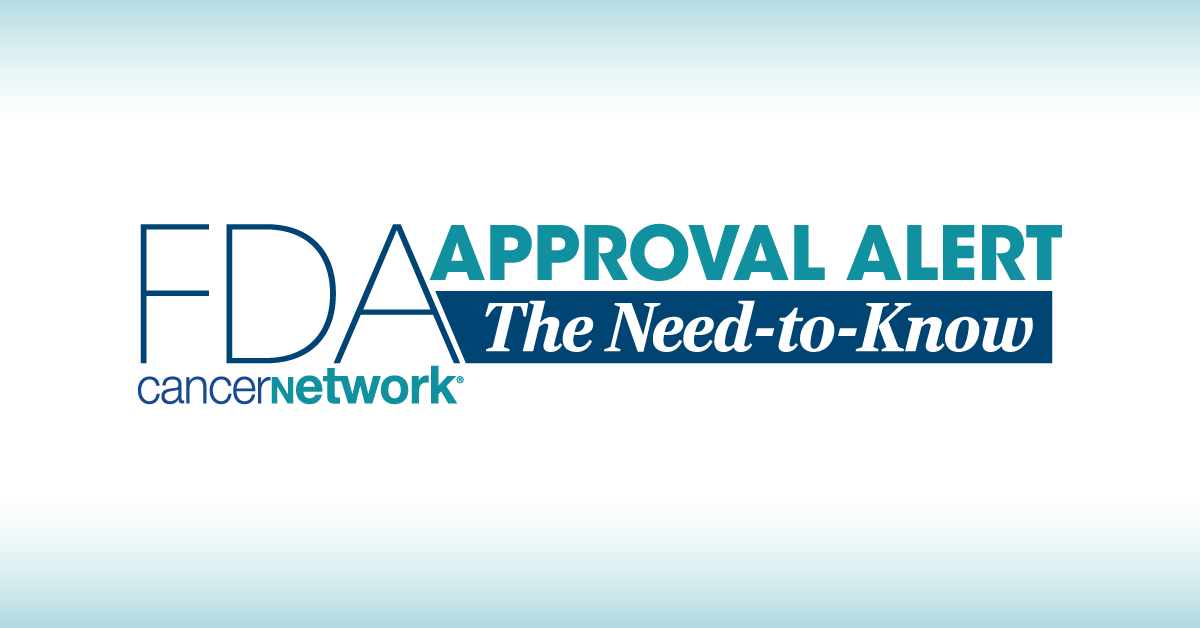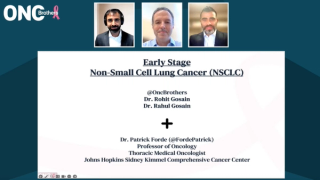
Non-Small Cell Lung Cancer (NSCLC)
Latest News

Sacituzumab Tirumotecan Granted Breakthrough Therapy Designation for NSCLC
Latest Videos

CME Content
More News

For patients with NSCLC, subcutaneous pembrolizumab appeared noninferior vs intravenous pembrolizumab for study end points when combined with chemotherapy.

FoundationOne Liquid CDx has been approved as a diagnostic tool for tepotinib in patients with non–small cell lung cancer METex14 skipping alterations.

Personalized therapy for non–small cell lung cancer has evolved significantly with the advent of comprehensive molecular testing.

Data from TROPION-Lung05, TROPION-Lung01, and TROPION-PanTumor01 support the new BLA for dato-DXd in advanced or metastatic EGFR-mutated NSCLC.

Treatment with THIO/cemiplimab was generally well-tolerated among patients with advanced NSCLC in the phase 2 THIO-101 study.

Glycan editing of cell surface glycans with E-602 may represent a novel therapeutic approach among patients with cancer.

Detection of S15 and PD-L1 proteins in more than half of NSCLC samples support the potential to target both pathways during treatment.

Updated OS findings from the PERLA trial showed continued success with dostarlimab plus chemotherapy in patients with advanced non–small cell lung cancer.

Treatment with domvanalimab/zimberelimab also improved progression-free survival vs platinum-based chemotherapy in the phase 3 ARC-10 study.

Patients with non–small cell lung cancer had a positive long-term benefit with perioperative chemoimmunotherapy, according to the 5-year NADIM trial update.

Data from the AcceleRET-Lung trial show an imbalanced risk of severe and fatal infection with pralsetinib for patients with RET fusion-positive NSCLC.

Phase 1 expansion data may support potential combination development for IDE397 in NSCLC and urothelial cancer harboring MTAP deletions.

Experts discussed the efficacy and durability of immunotherapy responses in patients with NSCLC.

A panel of experts focused on the use of dual immunotherapy options for patients with metastatic NSCLC without driver mutations.

Experts in non–small cell lung cancer met to debate the latest advances and treatment options and the hottest topics in the space.

Jenan Dailey, PharmD, BCAP, spoke about the approval of lazertinib plus amivantamab as first-line treatment for patients with locally advanced or metastatic NSCLC.

Patrick Oh, MD, highlights next steps for further research in treating patients with systemic therapy in addition to radiotherapy for early-stage NSCLC.

Increased use of systemic therapies, particularly among patients with high-risk node-negative NSCLC, were observed following radiotherapy.

Interest in novel therapies to improve outcomes initiated an investigation of the use of immunotherapy in early-stage non-small cell lung cancer.

The agency places a partial clinical hold on the phase 3 PRESERVE-003 trial due to varying results between the squamous and nonsquamous NSCLC cohorts.

Data from the phase 2 SAVANNAH trial may support savolitinib as a new treatment option following standard-of-care osimertinib in EGFR-mutated NSCLC.

Support for the approval comes from phase 3 LUNAR study findings indicating TTFields significantly prolonged OS compared with standard of care alone.

Patients with non–small cell lung cancer and larger brain metastases may benefit most from the addition of up-front stereotactic radiosurgery to TKIs.

Results from KEYNOTE-671 show an improvement in OS when a neoadjuvant/adjuvant regimen of pembrolizumab was used to treat patients with NSCLC.

Data from the LUMINOSITY trial support the application for telisotuzumab vedotin in nonsquamous NSCLC harboring c-Met protein overexpression.







































